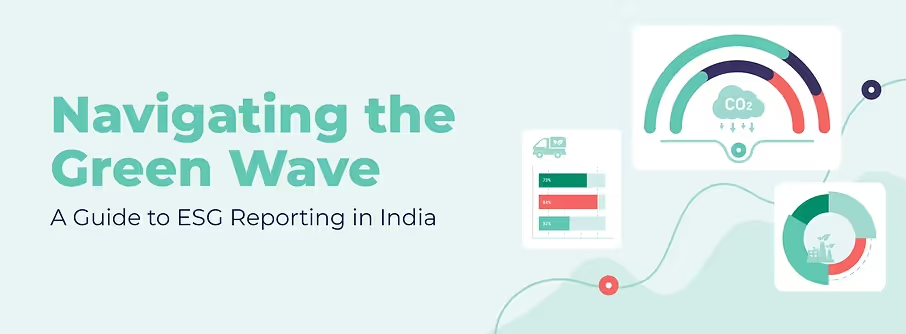
Solutions
Carbon Management
ESG Intelligence
Climate & Nature Risk
Data Registry
Beta
Sector
Get started, schedule a demo or request a free assessment!


In today's globalized world, responsible business practices go beyond just generating profit. Increasingly, investors, consumers, and stakeholders are demanding transparency and accountability on environmental, social, and governance (ESG) issues. This is where ESG reporting comes into play, offering a framework for businesses to measure, track, and communicate their impact on the planet, people, and good governance.
India, with its rapidly growing economy and ambitious sustainability goals, is witnessing a surge in the adoption of ESG reporting. There are several initiatives are shaping the landscape, including:
The flagship framework, BRSR, is mandated by the Securities and Exchange Board of India (SEBI) for the top 1000 listed companies by market capitalization. Introduced in 2021, BRSR goes beyond the earlier BRR (Business Responsibility Report) by:
This internationally recognized framework offers a comprehensive set of reporting standards applicable to any organization, regardless of size or industry. While not mandated in India, many companies voluntarily adopt GRI principles, particularly those seeking global sustainability recognition. GRI emphasizes:
Focused on industry-specific standards, SASB provides detailed disclosure guidance for different sectors. This enables investors and stakeholders to make informed comparisons between companies within the same industry. SASB's framework for India covers sectors like banking, construction, and mining.
As part of the International Financial Reporting Standards Foundation (IFRS), ISSB aims to establish a global baseline for sustainability reporting. Its inaugural standards, IFRS S1 and S2, focus on climate-related risks and opportunities, offering additional reporting options for Indian companies seeking alignment with international standards.
While not a reporting framework in itself, TCFD provides a recommended set of disclosures for companies to manage and report on climate-related risks and opportunities. TCFD's framework is gaining significant traction globally, and Indian companies are increasingly adopting its recommendations, particularly those within sectors vulnerable to climate change. TCFD emphasizes:
CDP is a global non-profit driving corporate transparency on environmental issues. While not mandatory in India, many companies participate voluntarily, particularly those seeking recognition for their environmental performance. CDP focuses on:
The International Integrated Reporting Council (IIRC) framework encourages companies to move beyond separate financial and sustainability reports. Integrated reporting aims to:
It focuses on sector-specific frameworks for climate-related financial disclosures. This aligns well with BRSR's emphasis on climate change and provides companies with detailed guidance on reporting climate risks and opportunities relevant to their industry. CDSB frameworks cover sectors like:
The complexities of navigating diverse ESG frameworks and ensuring data accuracy can deter businesses from embracing impactful ESG reporting. Innovative platforms like StepChange.earth are streamlining and empowering the sustainability journey.
We provide a comprehensive solution that caters to every step of the ESG reporting process. The platform, built by climate scientists and backed by science-based tools, offers a one-stop shop for data management, analyzing and benchmarking, setting science-based netzero objectives, and comprehensively automating reporting
We understand that ESG reporting isn't just a checkbox exercise; it's a crucial driver for positive change. With our technology and expertise, Indian businesses can move beyond compliance and unlock the true potential of ESG practices, transforming their operations, enhancing their brand, and contributing to a more sustainable future.

.svg)